Tessa’s Recipe Rundown
Taste: So starchy and carb-y and GOOOOOD. Texture: Somehow simultaneously light yet sturdy. These will stand up to any burger! Ease: Pretty easy, though this dough is slightly sticky. Appearance: Beautifully golden. Pros: So so so much better than store-bought. Cons: None. I make this again? Mmmhmm, we used up the first batch in a snap so I need to make another batch soon!This post may contain affiliate links. Read our disclosure policy.
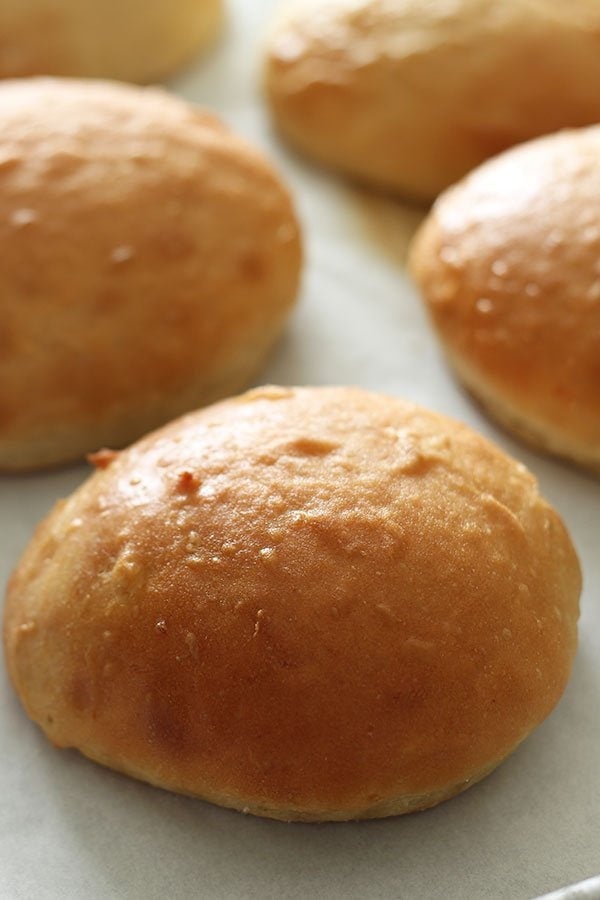
Recently I had a stellar breakfast sandwich. I ate the whole thing and I wasn’t even very hungry. That’s when you know something’s good.
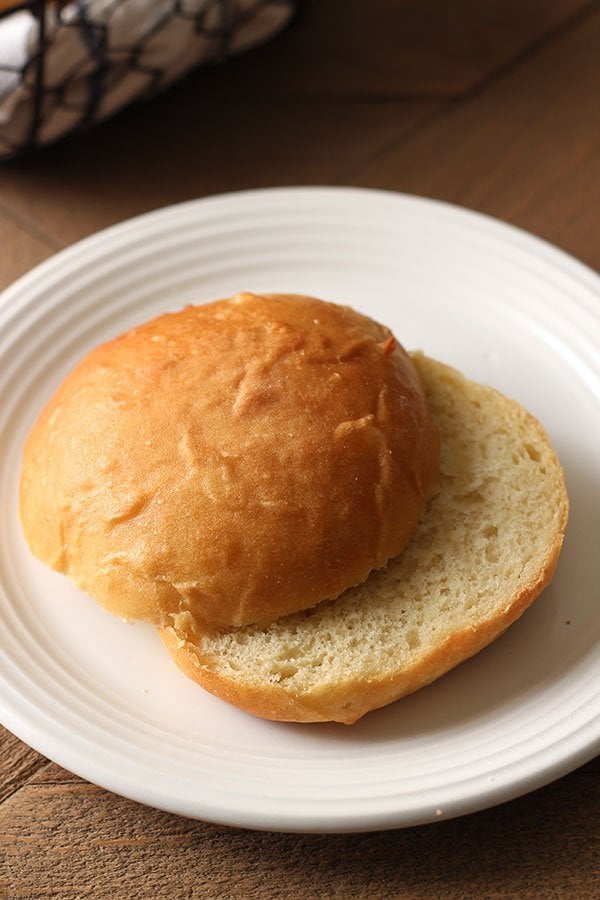
It happened the first morning after Jared had returned from touring the U.K. with his band. We both woke up super early (is jet lag contagious?!) and decided to go out for breakfast. There’s a place here in Phoenix called Matt’s Big Breakfast that has incredibly simple yet delicious food. The strange part is that the bun on their breakfast sandwich LOOKS like it would be crusty, but it’s actually an amazingly soft potato bun.
It fully inspired me to make my own potato buns, something I hadn’t done before. It took a bit of experimenting but I think I’ve got a pretty delightful recipe here that I hope you’ll make soon!
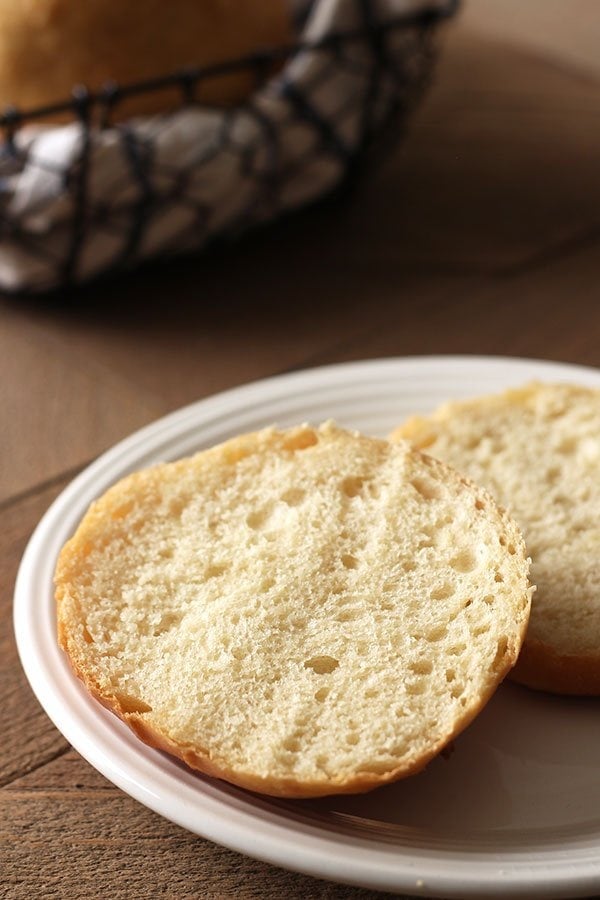
Potato Burger Bun Recipe Tips
Here’s some behind-the-scenes info and tips so you can be sure to make beautiful potato buns. If you’d like to see more about how certain ingredients affect your buns, check out my Ultimate Dinner Roll Guide.
The Flours
This recipe calls for both all-purpose flour and bread flour. The bread flour helps create a nice chewy and well-structured bun that can stand up to the juiciest of burgers. However, if you don’t have bread flour you can get away with using only all-purpose (a total of 3 cups all-purpose flour in that case).
This dough is on the sticky side, which means our rolls will be nice and light. Too much flour can often lead to dense and tough bread, so be weary of adding too much additional flour to combat the stickiness.
The Yeast
I always use instant yeast (also called rapid-rise or quick-rise) because it’s so incredibly easy as it doesn’t require any proofing. You can literally just throw it in with the rest of the ingredients. If you don’t have it, you can always use regular active dry yeast. You’ll need to combine the active dry yeast with the warm water for 5 minutes, or until frothy, before you can add proceed with the recipe.
The Potato
When I was researching this recipe, I found most recipes called for strange potato ingredients, like potato flour or dry potato flakes. I have a difficult time locating either of those at the grocery store, and felt like using a fresh potato would not only be the simplest option (every store sells russet potatoes!) but also the freshest and most natural. So this recipe calls for 1/2 cup of mashed potato. Meaning, you simply cook a plain russet potato (or something similar) in the microwave, oven, or in boiling water, until very tender. Let the potato cool before peeling and mashing very well. Don’t add any milk or cream, or anything else.
The Sugar
This recipe calls for 3 tablespoons of brown sugar, which give the buns a beautiful and complex hint of sweetness. If you don’t like much sweetness in your bread (especially for my non-American readers!), feel free to reduce the sugar to 1 tablespoon.
Egg & Butter
The egg and the melted butter called for in this recipe help to add flavor, richness, and a soft and tender texture. You can also brush the baked rolls with a bit of melted butter for more flavor and sheen, if you’d like.
Make Ahead
You can always let the dough rise for the first time overnight in the fridge. Simply refrigerate the dough after kneading in a container wrapped in plastic. Once you’re ready to proceed with the recipe, remove the dough from the fridge. Punch it down and allow it to rest and warm up to room temperature before shaping into buns, about 1 hour. The final rise may take a bit longer since the dough might still be cool.
Although bread is always best eaten when it’s very fresh, you can also store the fully baked buns. Store buns, well-wrapped, at room temperature for several days or in the freeze for up to 2 months. Defrost to room temperature then reheat in a 300°F oven or toast (these buns are amazing toasted on a griddle with butter).
More Bread Recipes to Try:
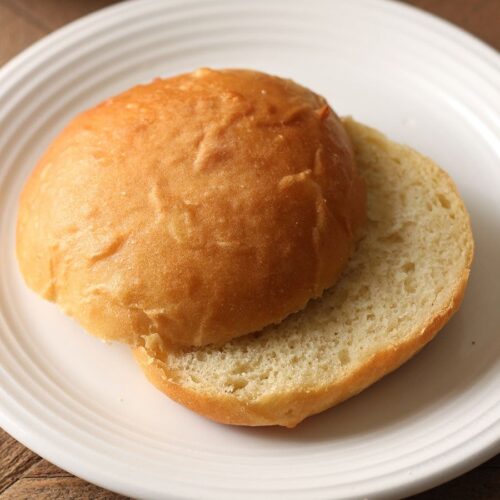
Potato Burger Buns
Ingredients
For the dough:
- 2 cups (255 grams) all-purpose flour
- 1 cup (128 grams) bread flour
- 1/2 cup plain mashed potato
- 1/4 cup (35 grams) nonfat dry milk
- 3 tablespoons light brown sugar
- 1 1/4 teaspoons salt
- 1 large egg
- 2 teaspoons instant yeast
- 4 tablespoons (58 grams) unsalted butter, melted
- 1 cup (227 grams) lukewarm water
For the topping:
- 1 tablespoon unsalted butter, melted
Instructions
- In the bowl of a stand mixer fitted with the dough hook, combine all the ingredients. Stir until combined. Turn the mixer on medium low speed and knead until a soft yet tacky dough forms, about 5 minutes.
- Place the dough in a lightly greased bowl, cover, and let rise in a warm place for 1 hour, or until it’s almost doubled.
- Turn the dough onto a lightly greased surface, gently deflate it, and divide it into 6 equal pieces. Roll each piece into a ball.
- Place the balls on a parchment-lined baking sheet, leaving about 2 to 3 inches between them and flatten gently. Cover and let rise until the buns have doubled in size 45 to 60 minutes minutes. Towards the end of the rising time, preheat the oven to 350°F.
- Bake the buns for 25 to 30 minutes, or until they’re light golden brown. Remove them from the oven, and brush them with melted butter, if desired.
- Transfer the buns to a rack to cool. Store buns, well-wrapped, at room temperature for several days or in the freeze for up to 2 months. Defrost to room temperature then reheat in a 300°F oven or toast.

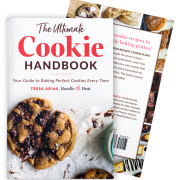
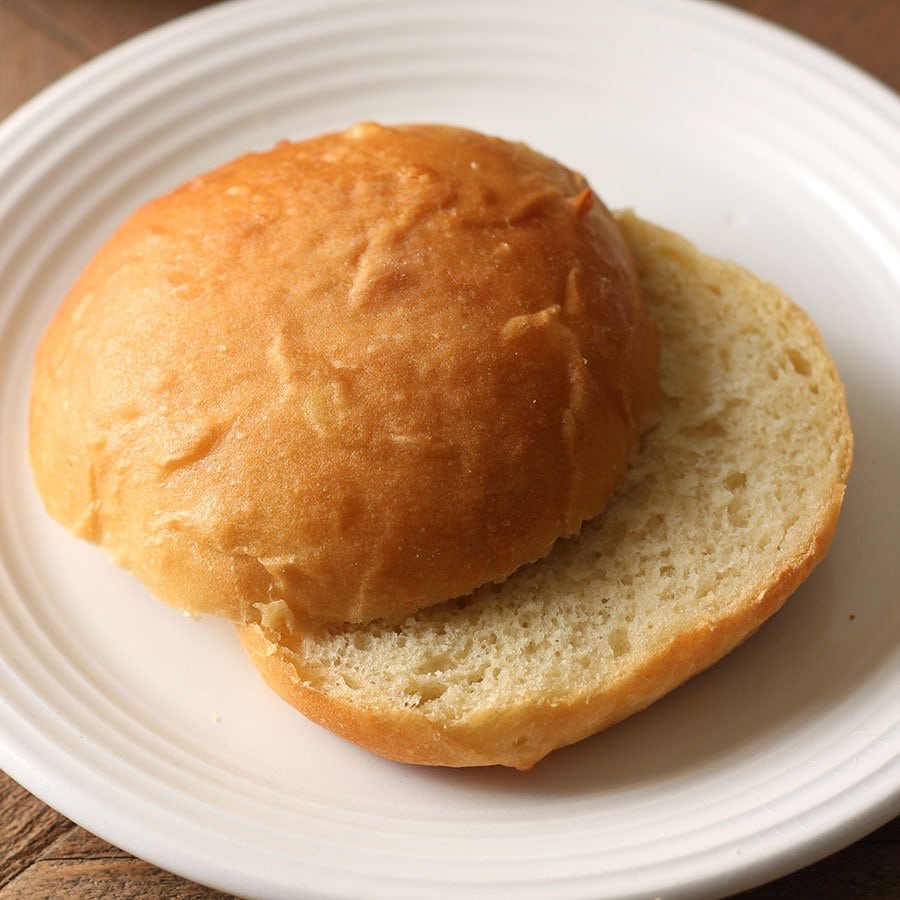
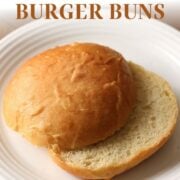
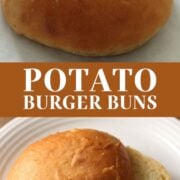
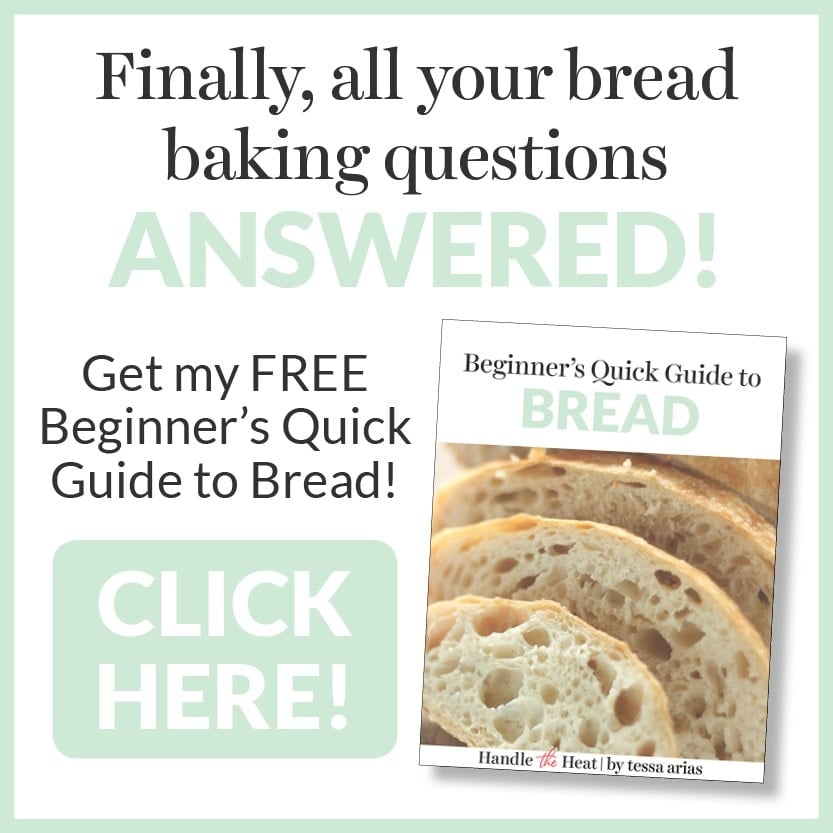
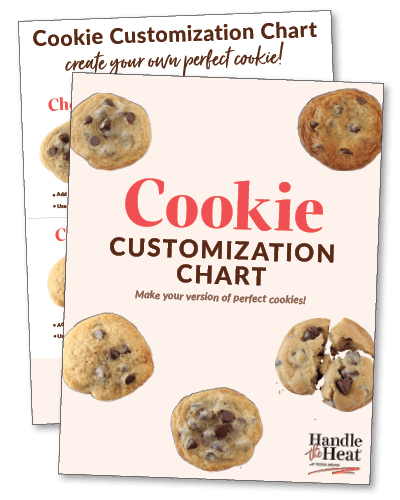
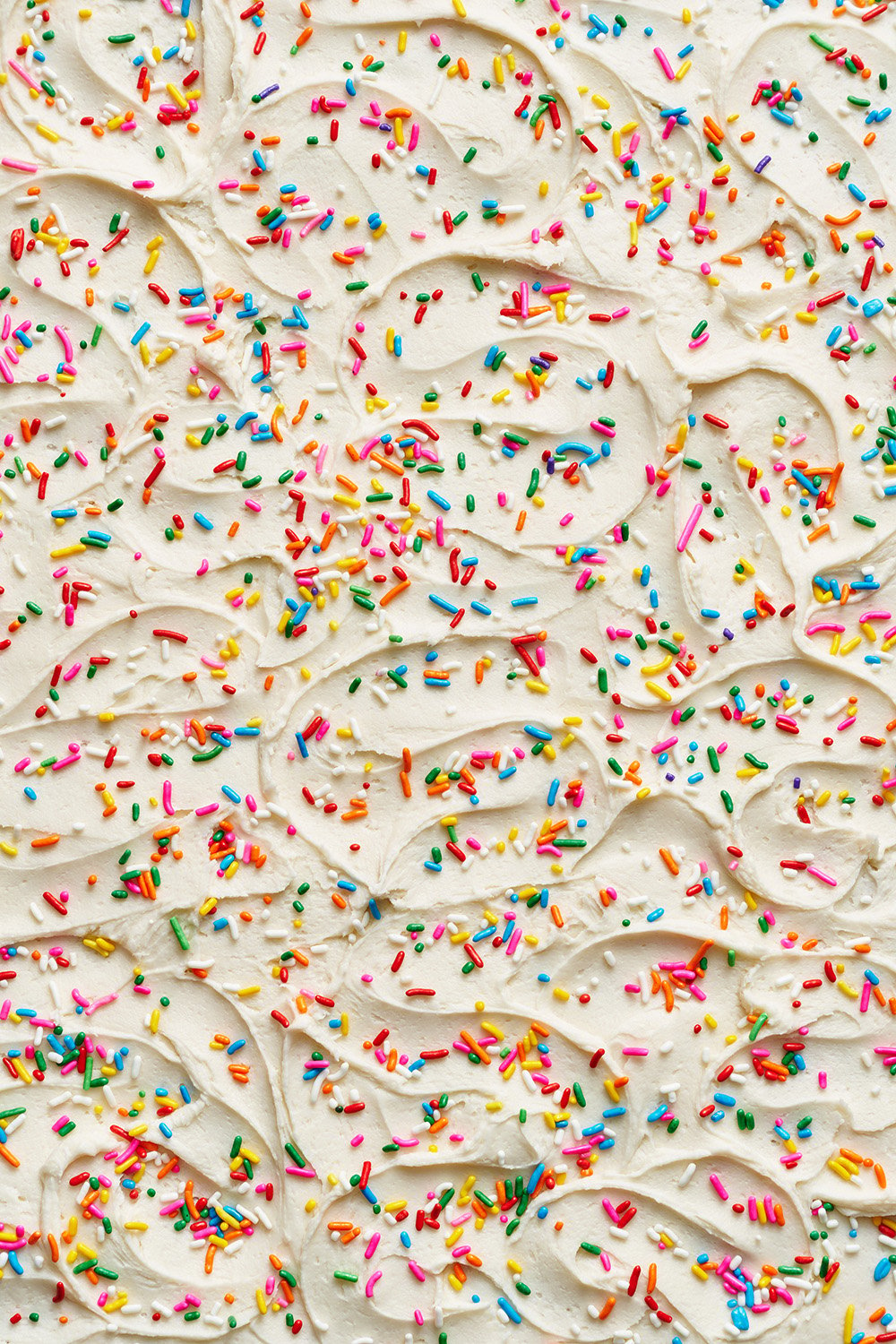
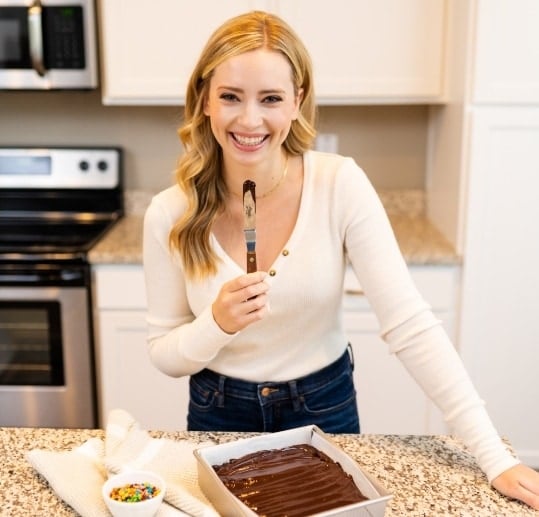
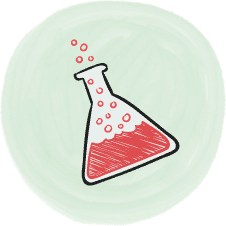
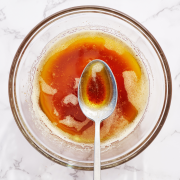
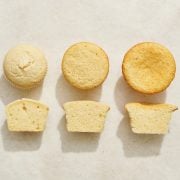
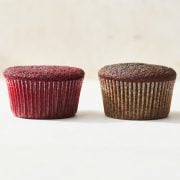
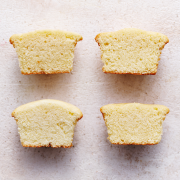
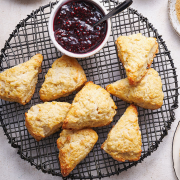
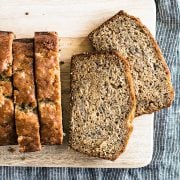
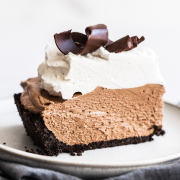
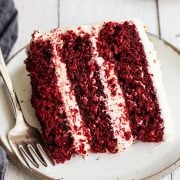








Hey Handle the Heat,
Love the recipe and the buns taste amazing, but, like one other commenter…the dough comes out like batter, doesn’t rise, and forms into one big round puddle.
I’m following the recipe to a ‘T’ and wondering it that may be the problem…
The problem in that I know there’s too much moisture given the extreme sticky texture of the dough.
Given the flour ratios – should I add less water?
Or if I stick to 1 cup of water and add more flour, which of the 2 flour types would it be better to add?
Thanks a bunch for the great recipe and helping with the troubleshooting.
Sorry you’ve had issues with your buns! I’ve tested this recipe extensively and would love to help you figure out what’s wrong. This dough is more like batter than a dough, and it is on the sticky side. Too much flour can lead to dense and tough bread, so I’d be a little leery of adding extra flour to combat the stickiness; however, you’re welcome to experiment on your own! I haven’t had any issues with these buns rising, did you check your yeast to make sure it’s still good? Were your mashed potatoes or melted butter too hot?
Thanks for getting back 🙂
And you’re absolutely correct in saying that the dough is more like a batter as that’s basically what I get each time.
Yeast is brand new and well within its expiration date.
Mashed potatoes were cold and melted butter was as lukewarm as the water.
So now that’s outta the way, the other big question I have is, how do you get your buns to form like you have in the pictures above? Because with the batter like consistency there’s no way I was able to form anything into something remotely looking like a ball. I did consider 4″ spring form pans…but any insight you have is most welcomed.
Thanks so much again!
I know that you really hate the idea of substituting ingredients. However, powdered milk is not a product that I ever have. The last time I purchased it for a recipe, I ended up throwing most of it out. I really do hate waste. Any suggestions on how I can make this recipe??
I haven’t tried substituting, but I’m thinking you could try using regular milk (same amount) instead. You’ll either need to increase the flour to balance the extra moisture or reduce the water. Again, not sure the exact amounts because I haven’t tested this, but it should work. Let me know how it goes!
♀️! Can I use full fat dry milk? That’s what I have on hand. Don’t want to buy more before I use up of what I have. TIA
I honestly haven’t tried that, but you’re welcome to! Let me know how it goes!
Hi can you use wheat flour instead of all purpose flour?
I haven’t tried that, so I can’t say for sure! I talk about why I use the specific flours I chose in the Tips section above the recipe 🙂
Do u put the 4 tblap of butter in the buns or is it for greasing the tops of bun? I didn’t put it in , could I add the second rising.?
Hi Barb, you are supposed to combine ALL of the ingredients together in the beginning of the recipe, as directed 🙂 The butter needs to be mixed in fully with the other ingredients at the beginning, and you definitely don’t want to mess with the rise of your buns. If you add the butter after the second rising, not only might you have a difficult time mixing it in fully, but it will deflate your buns completely, and they will have a hard time rising again. Let me know how it goes!
These look great! Would love to give them a try, but was wondering if I could substitute the same amount of fresh milk for the dry milk, then reduce the water by 1/4 cup to account for the additional liquid. What do you think?
I haven’t tested that, but I believe that should work! Let me know how your burger buns turn out!
You can use fresh milk as a substitute for the dry milk. Just be sure to heat the milk and then let it cool. The technique is to ‘scald’ the milk.
https://www.thekitchn.com/scalding-milk-is-it-really-nec-112360
In bread making, scalding the milk serves a more scientific purpose. The whey protein in milk can weaken gluten and prevent the dough from rising properly. Scalding the milk deactivates the protein so this doesn’t happen.
My dough was SO sticky even after the first proofing. My buns did not rise in the oven at all. Even with second proofing they seemed to spread more flat than up. Any tips? My second proof was only 45 min so maybe that’s why? Was worried about over proofing.
These are the best burger/sandwich/anything buns I’ve made!
So glad to hear that!
Hi! Thank you so much for the recipe.
Is there anything I can replace the egg with? Or can I just skip the egg?
These are outstanding. Lovely soft squishy burger buns. Haven’t bought a pack of buns since I found this recipe. I tend to make 8 instead of 6 because I like a smaller burger. 🙂
So happy to hear this!
Delicious
This is a great recipe. I have made this recipe 10 times now. They are great, and work well with pulled pork, burgers, sloppy joes, or just a need for a delicious bread. As other cooks have said, the dough is more like a batter. I usually add more flour until it comes together into a soft dough. I do this 2 tablespoons at a time and it usually take about a half a cup (8 tbls total). I also use whey protein.
Yay! I’m so glad you love these burger buns!!